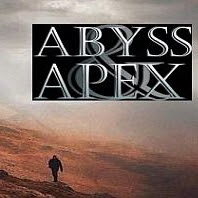The Other Side of the Keyboard
Editors are people.
It's hard to believe, but it's true.
When I think back to my early days of writing, editors were the famous authors whose works I'd been reading, like Lester del Rey, Lin Carter, Gardner Dozois, Marion Zimmer Bradley. They were larger than life figures, kaiju rampaging through slush piles.
My first publishing editor, John Joseph Adams at The Magazine of Fantasy and Science Fiction, even called himself the Slush God.
One of the first things I learned about editors was that they're human. They have preferences. They have tastes. They aren't simply arbiters of good and bad writing. In fact, Chief Editors don't even get to see the bad writing. When they do, they may have already read fourteen manuscripts that day about purple lesbian fairies who turn into lime Jello when they tell a lie, and your version of it just set them over the top, even if it was well written. I had a friend who wrote historical romance very successfully. She had an editor reject a proposal because "I don't do Ireland." She went back and set the story in Wales, and the editor bought it.
Editors are also not proofreaders. It would stun you how many writers do not bother with proper spelling and punctuation. Many don't worry about grammar either, or even verb tense consistency. They sit at a keyboard, puke out their stories, and send them off for some other person to do all the heavy work now that their brilliant story is complete. N.B.: You will be rejected if you do this.
In education, we have the phrase, "the other side of the desk." Students perceive the teacher as a monolith: usually sleeping in coffins in the classroom ...
 |
| Calvin and Hobbes, by Bill Watterson |
or hanging from the ceiling of the cafeteria like bats. (Yes, Doctor Who style) Parents perceive the teacher the way they remember their own teachers: I hate their kid just like their English teacher hated them, and I get I summers off so I get paid a full year for working only ten months. They have no concept of what goes on, the other side of the desk: the years of education, the hours of training, the daily hours of paperwork, the stress of remembering which 38 of your 120 students have IEPs to be addressed, and which of the girls are anorexic or bulimic so you can't use words related to food, and which students are borderline suicidal so please don't use the word kill or die or end in class. And don't get me started on 12-page lesson plan forms. Yes, you see the plan book on the desk with the 30 tiny boxes, but trust me, that ain't it.
Last year, I was invited to come on board the editing staff of Abyss&Apex online magazine, a wonderful SF/F/H publication of some of the finest genre fiction out there. (Blatant plug: CHECK IT OUT AND SUPPORT IT!) Now I'm learning the other side of the keyboard.
One of the first things I learned there was that a good story may not be right for a specific readership for a publication. I mentioned before that I still keep in touch with Jane Yolen and CJ Cherryh, who were so helpful with guidance way back on AOL message boards. It STUNS me when these women, two of the most brilliant writers I know, probably the first two women's names on my lips when someone asks, "who's your favorite author?" still get rejections from editors. In my head, I'm thinking, "What idiot would turn down a story by this woman?"
A second thing I learned was that the Chief Editor, the person who signs the contracts, has standards that may be different from someone else's. I have read some really well written stories that I've passed along for Wendy Delmater Thies's approval, and she has rejected them. In fact, in my first weeks, she had to reprimand me as a slush editor to use a finer seine to sift through the slush. She wanted ONLY the best, and she wanted ONLY what our readership would enjoy, what they've come to expect from our magazine.
This topic is on my mind this morning because I just met up with Wendy in person, along with our magazine's Art Director Bonnie Brunish. We had lunch, we had coffee, we had over two hours of catching up and chatting. Yes, we talked a little about Abyss&Apex business, but mostly we didn't. We were just three women having lunch.
So if you're a writer frustrated with rejection, do yourself a favor and meet the editors. If you can't meet them in person, read their magazines or the novels they publish. Attend writing conferences / conventions (no one really agrees on what "con" means except Captain James T. Kirk of the starship Enterprise) and be sure to go to the editors panels. They actually TELL YOU what they want. You may even get an invitation to submit, like I did when I was introduced to Gardner Dozois, who said, "Send me something. Then I'll remember your name better." I didn't get accepted, but he did remember me. We hung out together annually at Philcon, and my F&SF publication Czesko was given Honorable Mention in Gardner's 24th Annual Best of SF. He told me it was the funniest thing he'd read that year, something that made me incredibly proud.
Editors are people, and some of us are pretty amazing. I'll be looking for your submission.



Comments
Post a Comment
Please leave a comment! I'd love to hear from you.